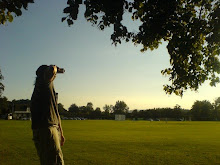Peter Hessler is the Beijing correspondent for the New Yorker and regular contributor to National Geographic. Hessler takes the reader on, as the title suggests, a journey through time. The author interlinks general Chinese history with modern day realism. Hessler encounters the Chinese generation that is powering the country's massive economic expansion, the young men and women who leave their rural homes to find work in the cities of Bejing, Nanjing and Chongqing. What they find is expertly told by Hessler, they could be described as the anonymous generation because so many of them find work in the endless factory lines but seem to have no life outside of their work, some even have to sleep in their factories and are forcibly prevented from leaving. One exception is Hessler's former student at an English school, William Jefferson Foster aka "Willy" ,who writes regular letters to Hessler engaging the author and subsequently the reader in his life and work. His funny anecdotes about listening to Voice of America are lively and portray a sense of hope that prevails in some of this Chinese generation that their parents could never aspire to. "WIlly" does unfortunately encounter the ever prevalent Chinese corruption and this forms another important chapter within Hessler story on modern China. The reader is also introduced to "Polat" a Uighur emigre. Polat is a man of all trades who Hessler knows as a black market money changer amongst other things. Polat's story of discrimination and eventual flight to political asylum in the US is compelling. The title Oracle Bones refers to the earliest known writing in East Asia, inscriptions from the Shang dynasty more than three thousand years ago. Oracle Bones, following on from Hessler's River Town, establishes Hessler as one of the foremost Western writers on modern day China. Hessler displays a real and thoughtful insight into the ever changing and evolving Chinese society.
 Available from all good book shops and some rubbish ones to.
Available from all good book shops and some rubbish ones to.







